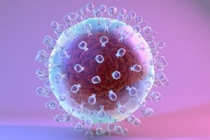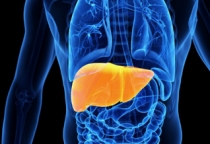-
2016-08-11
 Immunizing Infants Against Hepatitis B Tied to Lower Risk of Liver Cancer
Immunizing Infants Against Hepatitis B Tied to Lower Risk of Liver Cancer
NEW YORK (Reuters Health) - Immunizing infants against hepatitis B virus (HBV) appears to reduce their risk of developing hepatocellular carcinoma as children or young adults, according to a study from Taiwan.
-
2016-08-05
 Study Finds Viral Hepatitis as Deadly as Malaria, Tuberculosis or HIV Worldwide
Study Finds Viral Hepatitis as Deadly as Malaria, Tuberculosis or HIV Worldwide
Researchers at Imperial College London and the University of Washington analyzed data from 183 countries between 1990 and 2013, and discovered that viral hepatitis has become a leading cause of death worldwide over the past 23 years, killing as many per year as tuberculosis (TB), malaria or HIV/AIDS.
-
2016-08-05
 Phase 1/1b Trial for Chronic Hepatitis B Therapy to Continue, Based on Safety Panel Recommendation
Phase 1/1b Trial for Chronic Hepatitis B Therapy to Continue, Based on Safety Panel Recommendation
Based on preliminary positive safety data, a Safety Review Committee has recommended that a Phase 1/1b clinical trial be continued with TG1050, an immunotherapy candidate being developed by Transgene for the treatment of chronic hepatitis B virus (HBV) infection.
-
2016-08-01
 First Hepatitis B Patients Treated in Study of New Therapy at Lower Doses Than Standard
First Hepatitis B Patients Treated in Study of New Therapy at Lower Doses Than Standard
ContraVir Pharmaceuticals announced the dosing of the first patients with chronic hepatitis B enrolled in its head-to-head Phase 2a clinical trial comparing multiple doses of the company’s lead candidate CMX157 to tenofovir disoproxil fumarate (TDF), a standard therapy. Specifically, the trial will compare a lower dose of CMX157 to the commonly used dose of TDF (Viread, Gilead Sciences).
-
2016-08-01
 NASH May Be Prevented in Hepatitis Patients by Blocking Inflammatory Cytokine
NASH May Be Prevented in Hepatitis Patients by Blocking Inflammatory Cytokine
The proinflammatory cytokine IL-17 drives the development of non-alcoholic steatohepatitis, or NASH — a disease that often leads to liver cancer, researchers at the National Cancer Research Centre (CNIO), in Spain, reported.
-
2016-07-13
 Liver sinusoidal endothelial cells: physiology and role in liver diseases
Liver sinusoidal endothelial cells: physiology and role in liver diseases
Liver sinusoidal endothelial cells (LSECs) are highly specialized endothelial cells representing the interface between blood cells on the one side and hepatocytes and hepatic stellate cells on the other side.
-
2016-07-12
 Combined systemic elimination of MET and EGFR signaling completely abolishes liver regeneration and leads to liver decompensation.
Combined systemic elimination of MET and EGFR signaling completely abolishes liver regeneration and leads to liver decompensation.
Receptor tyrosine kinases MET and EGFR are critically involved in initiation of liver regeneration. Other cytokines and signaling molecules also participate in the early part of the process. Regeneration employs effective redundancy schemes to compensate for the missing signals. Elimination of any single extracellular signaling pathway only delays but does not abolish the process.
-
2016-07-09
 Hepatic B cell leukemia-3 promotes hepatic steatosis and inflammation through insulin-sensitive metabolic transcription factors.
Hepatic B cell leukemia-3 promotes hepatic steatosis and inflammation through insulin-sensitive metabolic transcription factors.
The pathomechanisms underlying non-alcoholic fatty liver disease (NAFLD) and the involved molecular regulators are incompletely explored. The nuclear factor-kappa B (NFκB)-cofactor gene B-cell leukemia-3 (bcl-3) plays a critical role in altering the transcriptional capacity of NFκB - a key inducer of inflammation - but also of genes involved in cellular energy metabolism.
-
2016-07-08
 Time to decompensated cirrhosis and hepatocellular carcinoma after an HBV or HCV notification: a population-based study, 1995-2012
Time to decompensated cirrhosis and hepatocellular carcinoma after an HBV or HCV notification: a population-based study, 1995-2012
Delayed HBV or HCV diagnosis may increase risk of advanced liver disease complications, including decompensated cirrhosis (DC) and hepatocellular carcinoma (HCC). The aim of this study was to characterise “late hepatitis notification” among people with an HBV/HCV notification and advanced liver disease in New South Wales, Australia.
-
2016-07-07
 Persistent Nonalcoholic Fatty Liver Disease Increases Risk for Carotid Atherosclerosis
Persistent Nonalcoholic Fatty Liver Disease Increases Risk for Carotid Atherosclerosis
Nonalcoholic fatty liver disease (NAFLD) has been associated with subclinical atherosclerosis in cross-sectional studies. We investigated the longitudinal association of NAFLD with the development of subclinical carotid atherosclerosis.
 Immunizing Infants Against Hepatitis B Tied to Lower Risk of Liver Cancer
Immunizing Infants Against Hepatitis B Tied to Lower Risk of Liver Cancer
 Study Finds Viral Hepatitis as Deadly as Malaria, Tuberculosis or HIV Worldwide
Study Finds Viral Hepatitis as Deadly as Malaria, Tuberculosis or HIV Worldwide
 Phase 1/1b Trial for Chronic Hepatitis B Therapy to Continue, Based on Safety Panel Recommendation
Phase 1/1b Trial for Chronic Hepatitis B Therapy to Continue, Based on Safety Panel Recommendation
 First Hepatitis B Patients Treated in Study of New Therapy at Lower Doses Than Standard
First Hepatitis B Patients Treated in Study of New Therapy at Lower Doses Than Standard
 NASH May Be Prevented in Hepatitis Patients by Blocking Inflammatory Cytokine
NASH May Be Prevented in Hepatitis Patients by Blocking Inflammatory Cytokine
 Liver sinusoidal endothelial cells: physiology and role in liver diseases
Liver sinusoidal endothelial cells: physiology and role in liver diseases
 Combined systemic elimination of MET and EGFR signaling completely abolishes liver regeneration and leads to liver decompensation.
Combined systemic elimination of MET and EGFR signaling completely abolishes liver regeneration and leads to liver decompensation.
 Hepatic B cell leukemia-3 promotes hepatic steatosis and inflammation through insulin-sensitive metabolic transcription factors.
Hepatic B cell leukemia-3 promotes hepatic steatosis and inflammation through insulin-sensitive metabolic transcription factors.
 Time to decompensated cirrhosis and hepatocellular carcinoma after an HBV or HCV notification: a population-based study, 1995-2012
Time to decompensated cirrhosis and hepatocellular carcinoma after an HBV or HCV notification: a population-based study, 1995-2012
 Persistent Nonalcoholic Fatty Liver Disease Increases Risk for Carotid Atherosclerosis
Persistent Nonalcoholic Fatty Liver Disease Increases Risk for Carotid Atherosclerosis